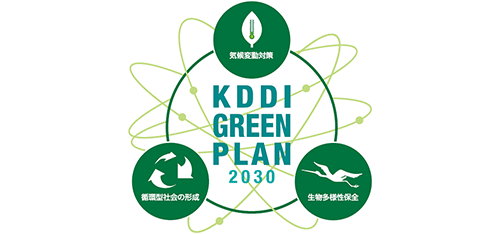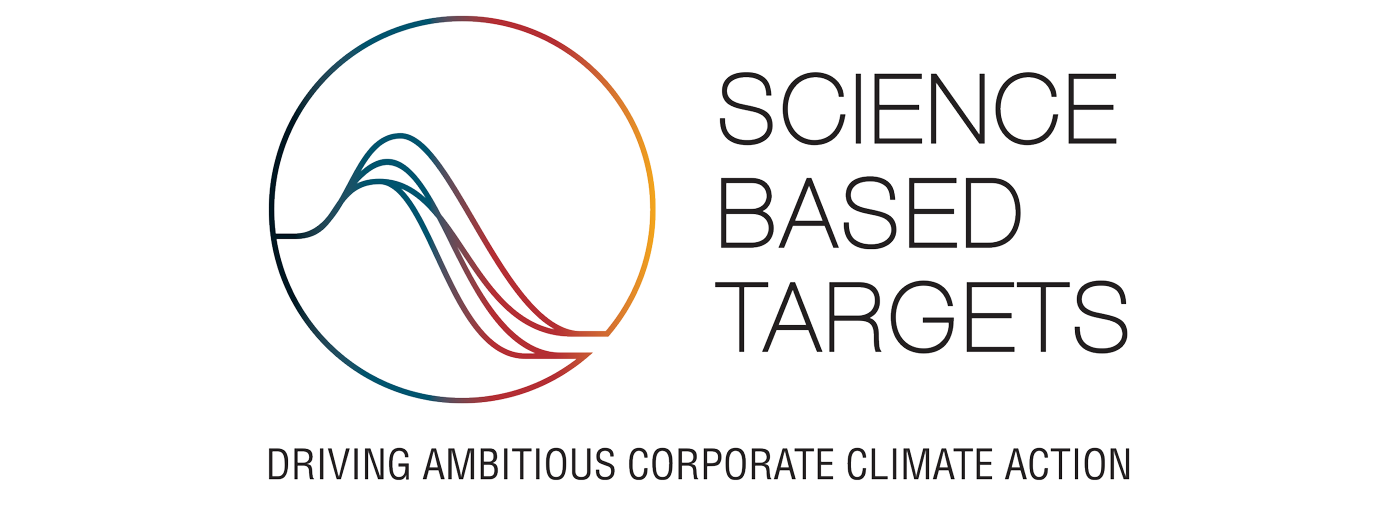- KDDI HOME
 Corporate Information
Corporate Information  Sustainability
Sustainability  Environment
Environment
Environment
KDDI's Approach (Environment)
Our attitude toward environmental conservation is defined in the KDDI Environmental Charter with the approval of the President. Here, the Manifesto (Approach to Global Environmental Problems), which is the highest-level concept, and the Action Guidelines to direct our concrete initiatives have been established.
In response to climate change, which is an important issue for the entire planet, we have declared that we will achieve carbon neutrality [1] by fiscal 2030. We will work to achieve net-zero CO2 emissions by reducing power consumption at base stations, utilizing renewable energy, and other measures.
In addition, to raise ecological awareness, we promote employee understanding of the impact of our business activities on the environment through training and other internal awareness programs, and we seek to resolve environmental issues through communication with internal and external stakeholders.
As a global company, KDDI is committed to steadily reducing the environmental impact of all its business activities.
- [1]Scope 1, Scope 2 (KDDI non-consolidated)
Aim to Achieve Net-Zero CO2 Emissions in Our Business Activities by fiscal 2030
KDDI aims to achieve net-zero CO2 emissions in its business activities by fiscal 2030. Furthermore, the KDDI Group aims to achieve net-zero CO2 emissions at its data centers under the Telehouse brand worldwide by fiscal 2026, in addition to Europe, where we have already implemented such measures. In addition, The KDDI Group as a whole aims to achieve net-zero CO2 emissions by fiscal 2050.
In May 2020, KDDI declared its goal of achieving net-zero zero CO2 emissions by fiscal 2050 in KDDI Sustainable Action, KDDI's SDGs for the year 2030. Subsequently, the Japanese government set a target in April 2021 to reduce greenhouse gas emissions by 46% in fiscal 2030 (compared to fiscal 2013); also, at COP26 in October 2021, each country was urged to take aggressive measures toward 2030. In response to this growing global environmental awareness, we have been studying ways to achieve carbon neutrality more aggressively in order to contribute to the improvement of the global environment, and we are now aiming to move forward 20 years from our previous goal, which was to achieve net-zero CO2 emissions by fiscal 2050.
The Fourth Environmental Conservation Plan: KDDI GREEN PLAN 2030

We are promoting a new Environmental Conservation Plan: KDDI GREEN PLAN 2030. This long-term plan is based on the objectives of the Paris Agreement adopted at COP21 in 2015 and Japan's Plan for Global Warming Countermeasures. Based on this, KDDI aims to achieve net-zero CO2 emissions in its business activities by fiscal year 2030, up from the target set when the plan was formulated (7% reduction from fiscal year 2013). In order to achieve carbon neutrality, we continue our efforts to reduce CO2 emissions by utilizing renewable energy and implementing other measures. We will disclose our progress each year as well as improve and revise the plan when we need to.
Obtained SBT Certification, an International Initiative for Climate Change

In February 2022, the KDDI Group obtained SBT certification under the international Science-Based Targets initiative (SBTi). In addition to the CO2 emissions reduction targets set by KDDI on a non-consolidated basis (in Japan), the KDDI Group as a whole will further promote measures to address climate change by setting new targets. To reduce CO2 emissions, we will promote energy efficiency and shift to renewable energy for cell phone base stations and telecommunications equipment.
| Target Items | Targets (KDDI Group) | |
|---|---|---|
| Scope1 | Direct GHG emissions from their business activities | By fiscal 2030, reduce CO2 emissions by 50% compared with fiscal 2019 |
| Scope2 | Indirect GHG emissions from the use of electricity, heat, and steam supplied by other companies | |
| Scope3 | Indirect GHG emissions other than Scope 2 (emissions by others related to business activities) | By fiscal 2030, reduce CO2 emissions by 14% compared with fiscal 2019 |
KDDI's effort to conserve environment
As the KDDI Group benefits greatly from the natural environment, we believe it is important to promote activities to address environmental issues. In order to pass on our irreplaceable earth to the next generation, KDDI Group employees are engaged in various activities to preserve the global environment in cooperation with various stakeholders, including local residents, governments, universities, NGOs and NPOs.
- Sustainability
-
- Environment
- Society
- Governance
- Mid-Term Sustainability Targets
- President's Message
- KDDI's Commitment to Sustainability
- KDDI's SDGs
- Integrated Sustainability and Financial Report
- ESG data
- Compliance
- Community Cooperation (in Japanese only)
- Social Contribution Activities
- Sustainability News (in Japanese only)
- External Recognition/Initiatives
- Recommended Contents
-


